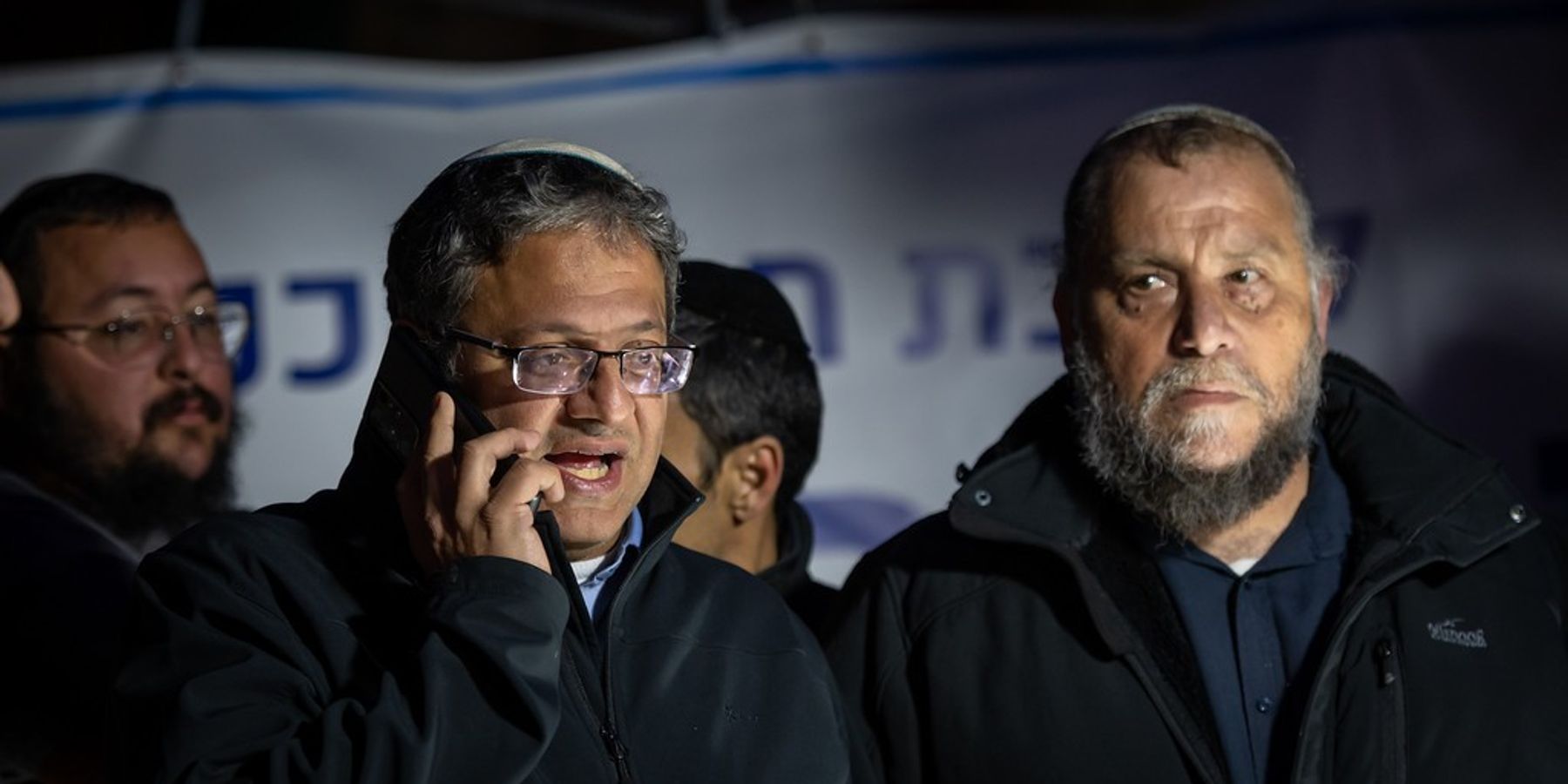The Biden administration will reportedly approve a $34 million sale of rifles to Israeli police after receiving assurances that the weapons would not end up in the hands of settlers in the West Bank, where violence has surged over the past month.
But experts and officials are raising questions about whether the Ministry of National Security will meaningfully hold to those commitments given Minister Itamar Ben-Gvir’s long standing support for expanding settlements in the West Bank as well as his recent efforts to stand up “security squads” of armed civilians.
Notably, Ben-Gvir promised last month that he would give weapons to settlers in the West Bank, and an apparently independent group distributed 300 rifles to settlers late last month in a move that it said was coordinated with the Israeli military and police — the latter of which is under Ben-Gvir’s control.
Firearms are a “particularly fungible weapon,” noted Josh Paul, a long-time State Department official who recently resigned in protest of the Biden administration’s approach to the Israel-Gaza war. Even if Ben-Gvir holds to his promise, a large sale of U.S. weapons could free up Israeli guns or American weapons from previous sales to give to settlers, Paul explained.
It is also unclear whether a sale of rifles to Israel’s national police complies with the Biden administration’s own policy around weapons exports, which stipulates that the United States will not sell arms to units involved in gross violations of human rights.
“Within the Israeli National Police, there are a number of units that the Bureau of Democracy, Rights, and Labor at the State Department has identified as being credibly involved in gross violations of human rights, including extrajudicial killings and torture,” Paul told RS.
In a statement to RS, a spokesperson for the State Department did not address Paul’s allegation directly but argued that, under the administration's weapons sale policy, "[a]rms transfers and sales are evaluated holistically on a case-by-case basis based on diplomatic, security, economic, and human rights considerations." The spokesperson added that State officials "continue to stress to our Israeli partners the importance of mitigating civilian harm during operations."
A State Department official has said U.S. rifles will “only go to Israeli national police-controlled units.” Ben-Gvir has framed the “security squads” as a crucial way to protect Israeli citizens in case of a surprise attack like the one that occurred on October 7.
While the Biden administration has yet to publicly approve the sale, Axios reported that the White House and the relevant congressional committees have already signed off on the deal.
The news of the arms sale came shortly before Human Rights Watch issued a blanket call on all weapons suppliers to “suspend the transfer of arms to the warring parties in Israel and Gaza given the real risk that they will be used to commit grave abuses.”
“Providing weapons that knowingly and significantly would contribute to unlawful attacks can make those providing them complicit in war crimes,” Human Rights Watch argued.
The debate over whether to send U.S. weapons to Israeli police reveals the extent to which American officials are worried about violence in the West Bank, where soldiers and settlers have killed at least 130 Palestinians, including 41 children, and displaced more than 1,100 civilians. Settlers, for their part, claim that they are responding to an uptick in Palestinian violence.
While relatively few in Congress have called for a ceasefire in Gaza, a growing number of lawmakers have condemned settler violence. Sen. Chris Van Hollen (D-Md.) is reportedly among those who raised questions behind closed doors about the potential firearms sale. (Van Hollen’s office did not respond to a request for comment from RS.)
President Joe Biden has also slammed settler violence as “pouring gasoline on the fire” of the ongoing war. National security adviser Jake Sullivan put a finer point on the issue last week when he told CNN that it is “totally unacceptable to have extremist settler violence against innocent people in the West Bank.”
- How Israel’s Likud Party played the long game toward annexation of the West Bank ›
- With world's focus on Gaza, West Bank conflict brews ›
- Dems call for more oversight of US weapons in Gaza - Responsible Statecraft ›
















